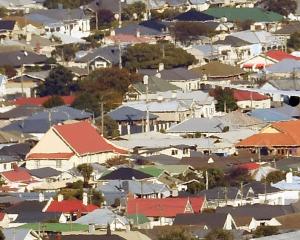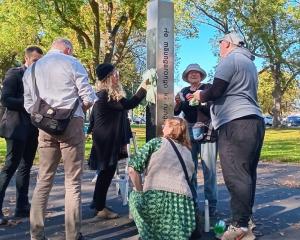
About 30 firefighters and four helicopters were at the site yesterday, dampening down hot spots that continued to pop up following the blaze that began last weekend.
Of the 5000ha of land burnt by the fire, about 1100ha was in Te Papanui Conservation Park.
Department of Conservation acting Dunedin operations manager Mike Hopkins said it was bad news for species that depended on the area.
The Deep Steam catchment has the largest population of threatened native fish species Eldons galaxias.
Some losses were expected, and increased sediment and ash run-off may have a further impact.
''Some affected populations would be expected to slowly recover over time from unaffected wetland areas but for others we expect a permanent loss and subsequent range restriction.''
While many birds would have flown away from the fire zone, less mobile species such as lizards and invertebrates will have suffered substantial losses, he said.
''The area burnt has been known to previously support falcon nests so it is possible that nests of this species, and other ground nesting birds such as pipit, may have been lost in this fire.
''We also expect an ongoing loss of feeding habitat for falcon and other birds.''
As for flora in the area, while some snow tussocks would have been killed, most were expected to eventually recover, although that could take many years.
Some areas of native shrubland in gullies and around rock outcrops were also destroyed.
The area of burnt tussockland might be vulnerable to weeds such as broom, gorse and hawkweed, and pest animals could also be attracted to resprouting tussocks, Mr Hopkins said.
''Monitoring will help determine if any management intervention is required to assist the natural recovery process.''
Most of the park was not burnt and those areas would be important for the recovery of the burnt area as a source of seed and fauna.
Otago district principal rural firefighter Graeme Still said firefighters hoped rain last night and today would give them ''a breather'' from the hot spots that continued to flare up in the area.
Advertisement













